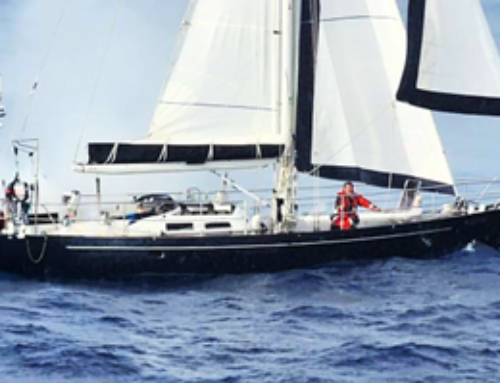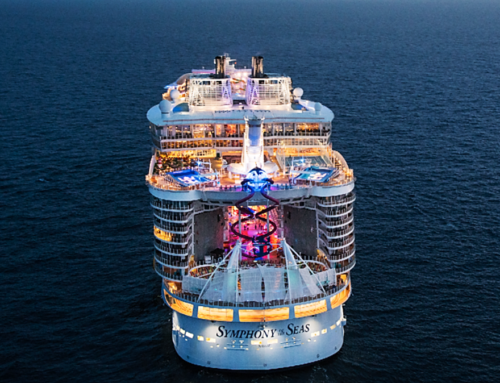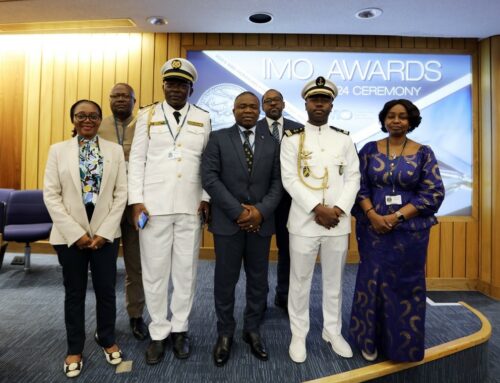Overboard and Overworked: The Alarming Rise in Maritime Accident Rates
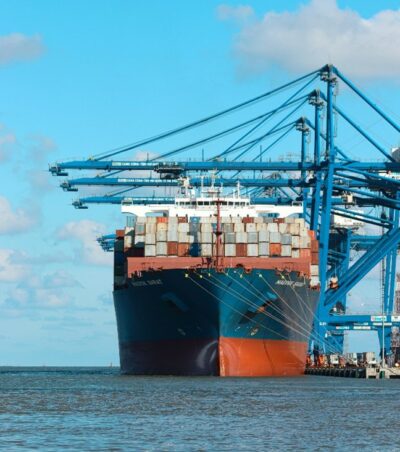 The vast seas, rivers and oceans are not just home to marine life- they also serve as a vital workplace for millions around the world. As of 2019, approximately 650,000 mariners were employed, with even more working in ports and marine terminals. The U.S. marine sector alone supports 2.3 million jobs. However, only a small percentage of these are at the front lines—aboard vessels or handling cargo. For those who brave the open waters, everyday hazards can become life-altering in an instant.
The vast seas, rivers and oceans are not just home to marine life- they also serve as a vital workplace for millions around the world. As of 2019, approximately 650,000 mariners were employed, with even more working in ports and marine terminals. The U.S. marine sector alone supports 2.3 million jobs. However, only a small percentage of these are at the front lines—aboard vessels or handling cargo. For those who brave the open waters, everyday hazards can become life-altering in an instant.
Falling: The Leading Cause of Maritime Casualties
Among the numerous dangers faced by maritime workers, falling is the lead cause of injury. Studies consistently show that falls—whether from a height onto a ship’s deck or overboard into the sea—are the most common cause of serious injury and fatality on ships. The problem isn’t confined to vessels alone; ports and offshore platforms also are prone to accidents involving heavy objects, leading to blunt force trauma or crushing injuries.
What makes these findings even more alarming is the realization that most maritime incidents occur during routine work. This suggests that the root of the problem lies in the very structure of the maritime industry.
Man overboard (MOB) incidents, while terrifying, are all too common. Nearly two-thirds of (Man Over Board) MOB accidents on commercial fishing vessels go unwitnessed. A study of MOB incidents from 2000 to 2016 revealed a troubling trend: none of the sailors who died were wearing personal flotation devices (PFDs).
While MOB incidents are often the most dramatic, slipping and falling on vessels are just as hazardous. Falls from heights can result in broken bones, head injuries, brain damage, and other serious consequences. While fall prevention can sometimes be a matter of training and awareness, it is often linked to more systemic issues, like inadequate flooring and insufficient rest.
Sleep deprivation, a common side effect of the demanding life at sea, can impair motor control, making it harder for even the most cautious mariners to avoid trip hazards. The dangers are further compounded by cluttered workspaces and slippery conditions caused by oil, seawater, or similar substances accumulating on the deck.
Rise of Ship Mechanical Failures
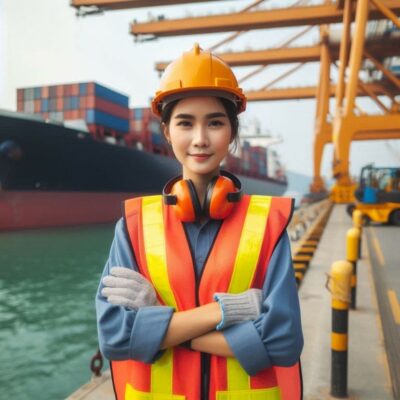 The rise in maritime incidents over the past decade is not just a coincidence. More than half of all vessel issues stem from mechanical failures. In 2022, ship mechanical failures hit a decade-high, raising concerns about the industry’s current trajectory.
The rise in maritime incidents over the past decade is not just a coincidence. More than half of all vessel issues stem from mechanical failures. In 2022, ship mechanical failures hit a decade-high, raising concerns about the industry’s current trajectory.
The reasons behind these mechanical failures are complex, but many point to company policies. Tight schedules and cost-cutting measures mean less time spent on maintenance and repair in port, leading to critical problems being overlooked. With fewer skilled mechanics and dry docks available, ships are being pushed to their limits, and crews are left to bear the brunt of the consequences.
The connection between mechanical failures and falls or being struck by equipment is clear: when companies prioritize profits over safety, they often push both their ships and crews to the limit, which creates ideal conditions for disaster.
One of the most effective ways to mitigate the risks at sea is by increasing the number of crewmembers. Many of the safety hazards maritime workers face—whether it’s sleep deprivation, falls, or being struck by equipment—can be traced back to inadequate staffing. With more hands on deck, shifts could be shorter, reducing the likelihood of accidents caused by exhaustion. Additionally, more crew members would increase the chances of witnessing and responding to a man overboard incident.
Unfortunately, the industry is moving in the opposite direction. Despite occasional surges in employment, crew sizes have been shrinking steadily for decades. From 1960 to 1990, the average crew size of American cargo vessels was cut in half. Automation technology has further reduced the need for human labor, lowering operational costs for shipping companies but increasing the risks for those still on board.
As crews face mounting risks, it’s only fair that companies step up to provide lifetime compensation for those who suffer long-term injuries or for the families of those who lose their lives at sea. For example, a traumatic brain injury (TBI) is not just a medical bill; it represents a life-altering event. TBIs can lead to psychological issues, difficulty reconnecting with loved ones, and an inability to enjoy life’s simple pleasures. The impact is even more severe for older workers, making TBIs an even greater threat in today’s aging maritime workforce.
Shipping companies have a choice: they can either invest in increased staffing and better working conditions, or they can take responsibility for the lifelong costs of injuries suffered by their crews. In the end, the maritime industry must acknowledge the real human cost of their operations. It is long past time to prioritize safety and ensure that those who risk their lives at sea are protected—both on the job, and long after.
We at the Herd Law Firm are proud to fight for seamen, maritime workers and passengers in all types of personal injury and death claims. As maritime personal injury attorneys located in northwest Houston, we never waver in our commitment to help these maritime workers, passengers, and their families when they are injured or mistreated.
Sources: U.S. Transportation Institute, National Institute of Health, NCBI, Lloyds List of Intelligence
8/22/2024







